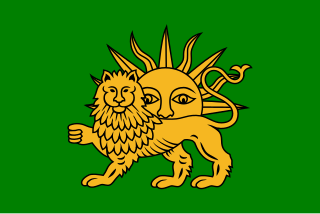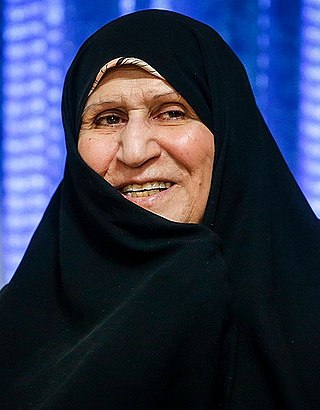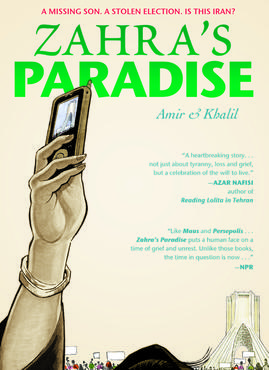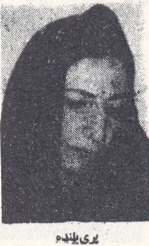Related Research Articles

The Safavid dynasty was one of Iran's most significant ruling dynasties reigning from 1501 to 1736. Their rule is often considered the beginning of modern Iranian history, as well as one of the gunpowder empires. The Safavid Shāh Ismā'īl I established the Twelver denomination of Shīʿa Islam as the official religion of the Persian Empire, marking one of the most important turning points in the history of Islam. The Safavid dynasty had its origin in the Safavid order of Sufism, which was established in the city of Ardabil in the Iranian Azerbaijan region. It was an Iranian dynasty of Kurdish origin, but during their rule they intermarried with Turkoman, Georgian, Circassian, and Pontic Greek dignitaries, nevertheless, for practical purposes, they were Turkic-speaking and Turkified. From their base in Ardabil, the Safavids established control over parts of Greater Iran and reasserted the Iranian identity of the region, thus becoming the first native dynasty since the Sasanian Empire to establish a national state officially known as Iran.

Sayyed Abol-Ghasem Mostafavi-Kashani was an Iranian politician and Shia Marja. He played an important role in the 1953 coup in Iran and the overthrow of Prime Minister Mohammad Mosaddegh.

Simin Dāneshvar was an Iranian academic, novelist, fiction writer, and translator.
Iranian rock refers to rock music produced by Iranian artists. Rock music has been popular in Iran since 1960s, with the emergence of singers such as Kourosh Yaghmaei, Farhad Mehrad, Fereydoon Foroughi and Habib Mohebian, but was largely forgotten after the Iranian Revolution. Like most rock styles, electric guitar and bass guitar and drums are the main instruments in this type of music. In some groups, keyboard and piano are very important.

Kelardasht, also Romanized as Kalārdasht, is a city in the Central District of Kelardasht County, Mazandaran province, Iran, serving as capital of both the county and the district.

Sayyida Zahra Mostafavi Khomeini is an Iranian politician and educator. The daughter of Ruhollah Khomeini, the leader of the Iranian Revolution and subsequent Supreme Leader of Iran, Mostafavi was awarded a PhD in philosophy from the University of Tehran, where she subsequently taught. Mostafavi has been called the "most prominent" of Khomeini's three daughters, and has become a prominent supporter of women's rights in Iran in addition to Palestinian causes.

Shojae Khalilzadeh is an Iranian professional footballer who plays as a centre-back for Persian Gulf Pro League club Tractor and Iran national team. He is known for his pace, artistic tackles and positional sense.

Zahra's Paradise is a webcomic and graphic novel by Amir Soltani and Khalil set in modern Iran. It has been described as a political webcomic dealing with real-time events. Its story follows a mother searching for her son, who disappeared around the time of Iran's 2009 elections. Serialized online beginning in early 2010, Zahra's Paradise was published in hardcover format in 2011 and has received numerous positive reviews in mainstream press and blogs.
Beheshtabad is a village in Poshtkuh Rural District, in the Central District of Ardal County, Chaharmahal and Bakhtiari Province, Iran. At the 2006 census, its population was 319, in 63 families. The village is populated by Lurs.
Nazi is a village in Bazoft Rural District, Bazoft District, Kuhrang County, Chaharmahal and Bakhtiari Province, Iran. According to the 2006 census, its population was 41, in 9 families. The village is populated by ethnic Lurs.
Dalan is a village in Howmeh Rural District, in the Central District of Divandarreh County, Kurdistan Province, Iran. At the 2006 census, its population was 419, in 86 families. The village is populated by Kurds.

Haydar Mirza Safavi was a Safavid prince who declared himself as the king (shah) of Iran on 15 May 1576, the day after his father Tahmasp I had died. He was, however, killed that same day by the Qizilbash tribes that favoured his brother Ismail Mirza Safavi as the successor of their father. His mother was Sultanzadeh Khanum, a Georgian lady.
Davoud Amirian, is a contemporary Iranian writer. He has published more than 26 books and won several awards. He is currently working on writing memoirs, children's and adolescent literature, novels, comics, biographies of martyrs and screenwriting.

Sakineh Ghasemi, also known as Pari Bolandeh and commonly referred to as the tall fairy, was an Iranian sex worker. She was arrested after the 1979 Iranian Revolution and the burning of the Shahr-e No neighbourhood, and was executed on 12 July 1979, along with two other sex workers, on charges of "waging war against God." In contemporary literature and popular culture, her and her destiny have been mentioned many times.
Reign of Love also known by the name of the Arabic version of the series The Stranger of Tus is an epic historical drama series directed by Mehdi Fakhimzadeh, which aired on IRIB TV1 in 2000. The series is about the life of Ali ibn Musa al-Reza, the eighth Imam of Shia Islam. This series mainly focus on his life where he was brought to Merv from Madina by order of Al-Ma'mun and the period of his deputy till martyrdom. The telefilm version of this series has also been made and broadcast.
A rishama or rishema is a religious patriarch in Mandaeism. It is the highest rank out of all the Mandaean clergical ranks. The next ranks are the ganzibra and tarmida priests.
DJ Fasnaghari is the subject of an Internet meme that quickly became popular among the Iranian Internet user community in 2014. The release of several clips of a DJ named Fasnaghari singing, playing the keyboard, and warming up at a wedding and broadcasting them on social media made him an "internet figure" in a short period of time, in one or two films or serials of the Iranian Radio and Television. Attend, talk to a TV show about happiness and a foreign media outlet about the large number of his fans on the Internet, and release animations and games centered on him for the Android operating system. Had visitors. One of these pages received 100,000 likes in two weeks and his clips were viewed over 60,000 times. This was one of the first times that the potential of social networks such as Facebook appeared in Iran.

"Maybe Paradise" is the debut single by Iranian singer-songwriter Shervin Hajipour. It was officially released on May 12, 2019, through all Hajipour's platforms. Written and performed by Hajipour, it is a power pop blending electropop and dream pop styles. In the lyrics, the narrator is talking to his ex-lover and promising her that they will meet each other later somewhere else, maybe in paradise.

Mohammad Rasouli is a writer, Shahnameh scholar and economist from Iran. Rasouli works as a Shahnameh scholar in Iran, Tajikistan and Afghanistan. Rasouli's last work named Nasukh was nominated for the "book and cinema" section of the Tehran International Short Film Festival. The script of the short film Nasukh is taken from the book Nasukh written by Mohammad Rasouli.
References
- ↑ "Iranian children's literature discussed at Istanbul University". Tehran Times. Archived from the original on 2022-10-27. Retrieved 2022-10-27.
- ↑ Mohsenzadeh, Rasoul; Mostafavi Rad, Mohammad (27 June 2019). "Dynamic History of Iranian Book Publishing in Political and Social Settings". Publishing Research Quarterly. 35 (3): 500–516. doi:10.1007/s12109-019-09666-4. S2CID 198821314. Archived from the original on 12 April 2021. Retrieved 12 April 2021.
- 1 2 3 "Isthmuth but Paradise" (Press release). Ministry of Culture and Islamic Guidance; Translation & Publication Grant Programme of I.R. Iran. 11 October 2020. Archived from the original on 12 April 2021. Retrieved 12 April 2021.
- ↑ Eyvazi, Mojgan (31 July 2019). "The Woman Portrayal in the Works of Iranian Novelists". International Journal of Linguistics, Literature and Translation. 2 (4): 171–179. doi:10.32996/ijllt.2019.2.4.17 (inactive 31 January 2024). Archived from the original on 10 April 2021. Retrieved 8 April 2021.
{{cite journal}}: CS1 maint: DOI inactive as of January 2024 (link) - 1 2 "Gazelle Foreign Rights Catalogue 2014–2015" (PDF). Gazelle Literary Agency. 2014. p. 10. Archived (PDF) from the original on 2021-04-12. Retrieved 2021-04-12.
- ↑ "عذرخواهي از نويسندهي رمان پرفروش چاپ چهلم "دالان بهشت" نازي صفوي رونمايي شد". Iranian Students News Agency (ISNA) (in Persian). 26 July 2011. Archived from the original on 17 February 2018. Retrieved 5 April 2021.
- ↑ Mohsenzadeh, Rasoul; Mostafavi Rad, Mohammad (27 June 2019). "Dynamic History of Iranian Book Publishing in Political and Social Settings". Publishing Research Quarterly. 35 (3): 500–516. doi:10.1007/s12109-019-09666-4. S2CID 198821314. Archived from the original on 12 April 2021. Retrieved 12 April 2021.
- ↑ "نقدها". 2017-02-03. Archived from the original on 2017-02-03. Retrieved 2021-04-05.
- ↑ "Magiran | روزنامه سرمایه (1386/02/29): نازی صفوی رمان نویس: من و دانشور هر کدام زندگی را یک جور می بینیم". www.magiran.com. Archived from the original on 2024-03-31. Retrieved 2021-04-05.
- ↑ Behnegarsoft.com (2014-12-16). "نازي صفوي درباره "برزخ اما بهشت" با دانشآموزان سخن میگوید | ایبنا". خبرگزاری کتاب ايران (IBNA) (in Persian). Retrieved 2021-04-05.
- ↑ "نازی صفوی: ذهن من خودش سانسور دارد/ نوشتن برای من عشق است". خبرآنلاین (in Persian). 2011-01-30. Archived from the original on 2024-03-31. Retrieved 2021-04-05.
- ↑ "Barzakh Amma Behesht Nazi Safavi". AbeBooks. Archived from the original on 2024-03-31. Retrieved 2022-04-16.
- ↑ "Da¯la¯n-i bihisht (Da¯sta¯n-i I¯ra¯ni¯) [Persian] by نازی صفوی and Nazi Safavi". thriftbooks. Archived from the original on 2024-03-31. Retrieved 2022-04-16.
- ↑ Safavi, Nazi (3 September 2018). Cennet Koridoru Paperback – January 1, 2018. Muhenna Yayınları. ISBN 978-6056846809.